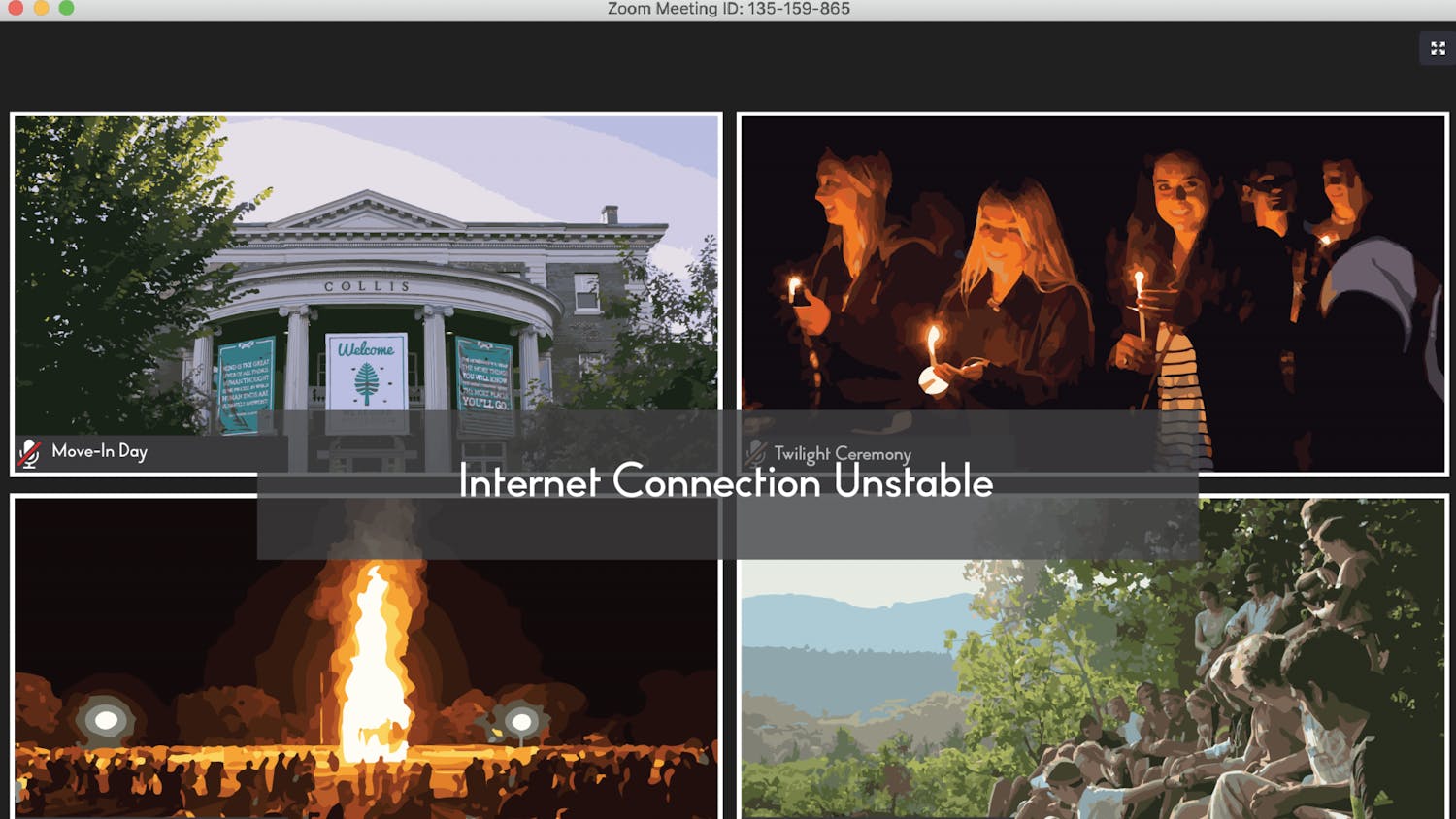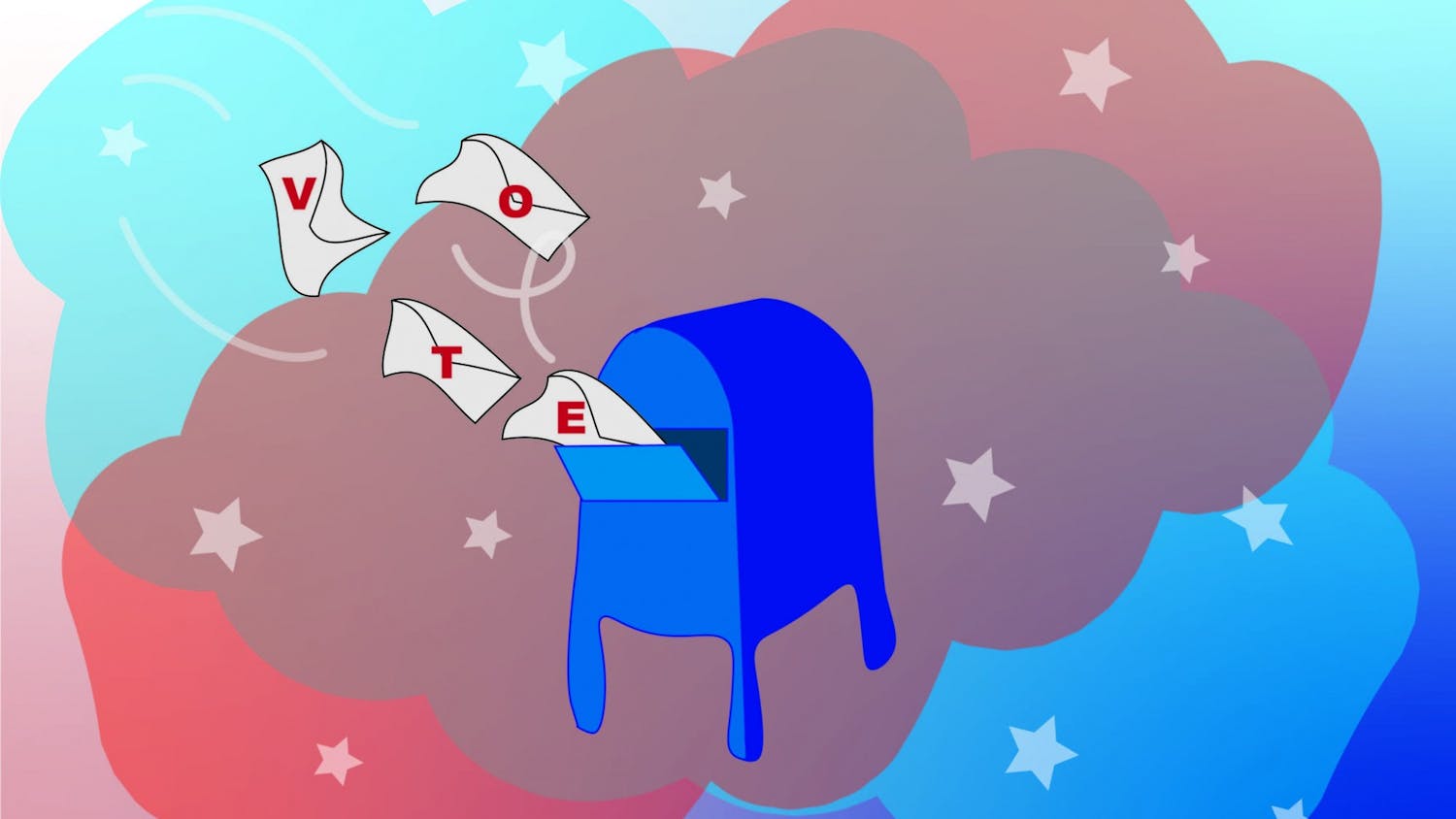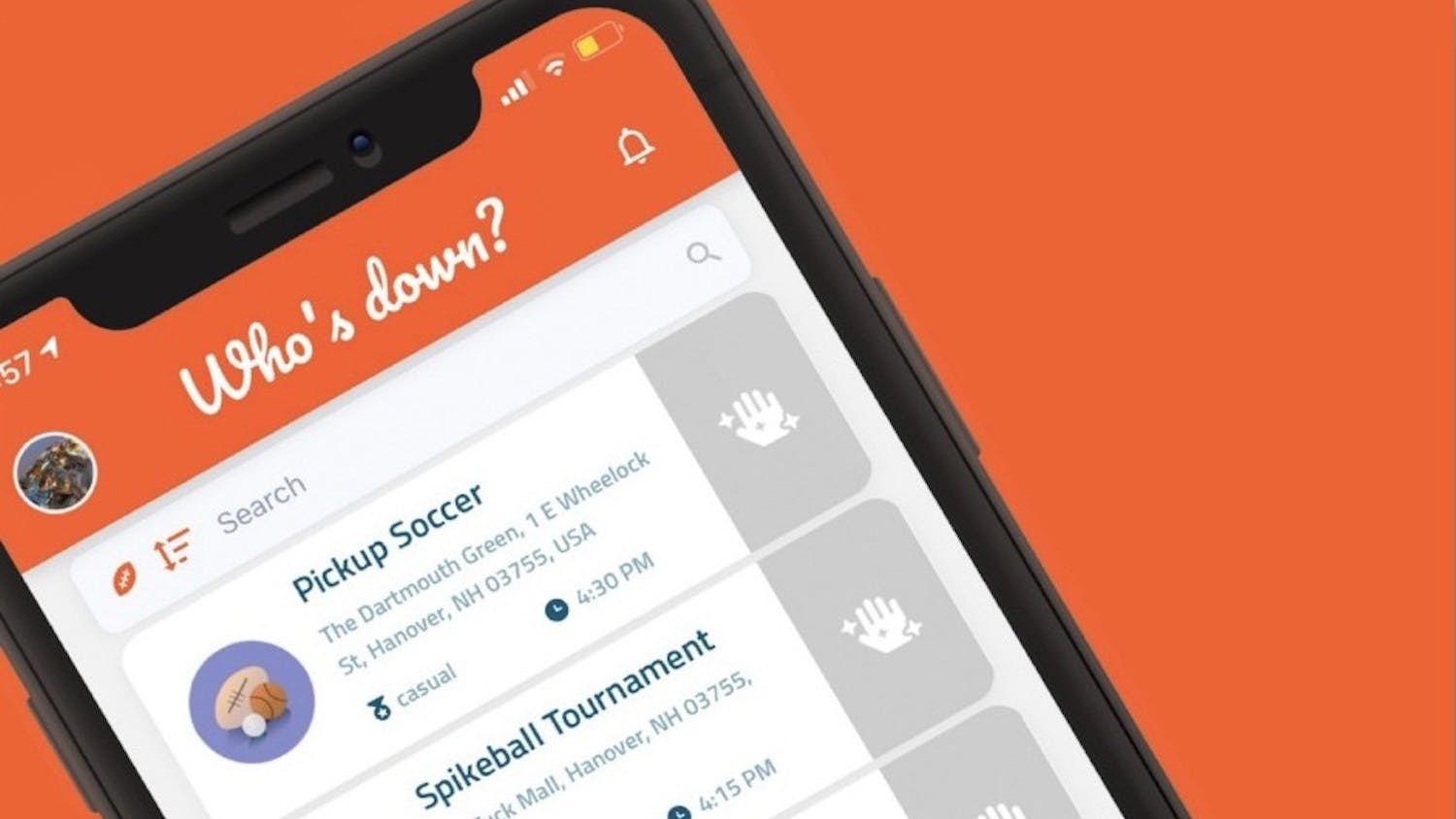Despite restrictions on social interactions, Dartmouth students are finding new ways to connect this term. Some are sticking with more familiar ways of meeting new people, but others are making the most of any and all online platforms to connect with others during a socially distanced time.
Before COVID-19, social media typically served to connect people with friends and family. Every now and then, a direct message on Instagram or being “added” by a friend of a friend on Snapchat might lead to a new connection — but for many, interacting with strangers on social media felt unconventional or uncomfortable.
But faced with social distancing, Dartmouth students are increasingly turning to non-traditional social media interactions as an outlet for meeting others. Popular avenues include private messaging over Zoom and using dating apps for forging connections entirely online.
Zoom interactions have become essential ways of communicating with others. Most people use Zoom for professional interactions like class, meetings or other group settings. However, Omala Snyder ’24 has found more personal ways to use Zoom. After being put in a breakout room with a group of classmates, she received a direct message that sparked one of her new friendships at Dartmouth.
Unlike meeting people in person, Snyder finds that chatting over Zoom forces students to connect over specific interests or shared experiences.
“On Zoom, you have to find common ground with people,” she said. For example, Snyder made a friend over Zoom after starting a conversation about a reading for class.
Snyder also noted the challenges of a Zoom friendship, or any friendship that occurs mainly over video calls. She believes that people behave differently over Zoom than they do in person, which can make it challenging to really get to know someone and form a close bond. However, Snyder said that Zoom friendships can sometimes feel more genuine, since people have to consciously make time to set up calls and maintain the relationship.
Ana Reyes ’22 experienced the other side of Zoom DMs. In one of her larger classes, a male student in the class direct messaged her through the private chat function on Zoom. At first, the student simply asked Reyes to share her notes with him. But when he added her on Snapchat, Reyes realized that the interaction was about a bit more than just notes.
The idea of using Zoom to initiate romantic relationships may seem bizarre, so I asked Reyes if she thought such a relationship could ever work in the real world.
“I think yes, and that’s weird because I wouldn’t have thought so a while ago,” Reyes said.
She explained that she would have responded differently if asked the same question back in February, but the pandemic has shifted her perceptions of online connection. Reyes believes that it’s simply more common to meet new people on social media in the COVID-19 era.
While some students are making use of Zoom to find romantic pursuits, many others are turning to apps specifically designed for these relationships. Ady Chaudhari ’24 shared her perspective on dating apps.
“I’m a very social person, so COVID has been super isolating for me,” Chaudhari said.
To stave off isolation, Chaudhari recently started using Bumble and Dil Mil, a dating app specifically for South Asians. She sees these apps as non-serious and something fun to do with her friends. She added that she was surprised to see the number of Dartmouth students on the platforms.
Vaish Thiraviyarajah ’22 said that she has noticed ’24s connecting over social media more than upperclassmen, as ’24s have few options when it comes to meeting new people. Thiraviyarajah added that she has noticed many upperclassmen also using dating apps more than they previously had. Compared to her previous years at Dartmouth, she said that connecting with other students online has become more convenient and popular during the pandemic.
Even after COVID-19, Thiraviyarajah thinks virtual interactions will replace some in-person events — though she acknowledged that virtual replacements are not quite the same.
“I feel like there definitely will be an increase in the use of Zoom, especially with social clubs or office hours. I feel like it’s really useful in those scenarios,” Thiraviyarajah said.
Sophia Rubens ’24 shared that her own use of social media has increased in the last few months. She has participated in many social Zoom events specifically meant to get to know her classmates. These events are often organized by the participants, who all are looking for the best way to make connections.
“It’s something beyond walking into your dorm room and just staying there for 10 weeks. … These are adaptations that have to happen,” Rubens said, describing the need for social activity this term.
Right now, online communication platforms are probably the safest option for meeting new people. Zoom and Bumble may have been designed for different kinds of interactions, but Dartmouth students are using a variety of apps in fun and unexpected ways, seizing any and all opportunities to be social.

Manasi Singh '24 is from Cincinnati, Ohio. She is majoring in anthropology and politics, philosophy and economics. At The Dartmouth, she wrote for news and Mirror but later transitioned to the business staff. Manasi now serves as the Publisher.




